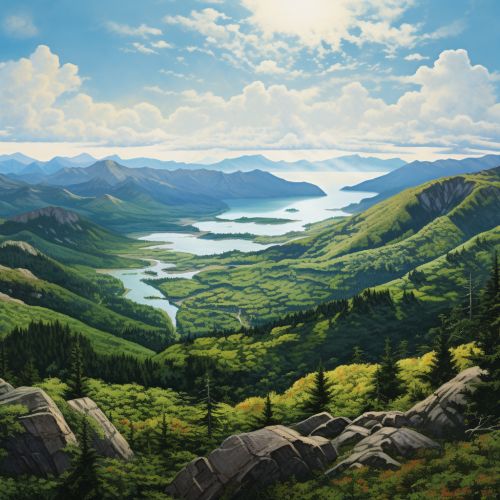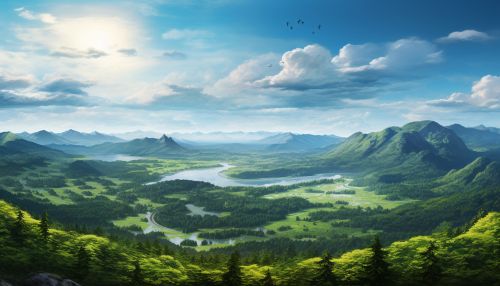Hokkaido
Geography
Hokkaido, the northernmost of Japan's main islands, is known for its volcanoes, natural hot springs (onsen) and ski areas. The island spans over 83,453.57 square kilometers, making it the second largest island of Japan. The island is surrounded by the Sea of Japan, the Sea of Okhotsk, and the Pacific Ocean. The Tsugaru Strait separates Hokkaido from Honshu, although the two islands are connected by the underwater railway, the Seikan Tunnel.


Climate
The climate of Hokkaido is characterized by long, cold winters and cool summers, a subarctic climate in the majority of the island and a humid continental climate on its southernmost regions. The island is also known for its heavy snowfall during winter, which makes it a popular destination for winter sports such as skiing and snowboarding.
Flora and Fauna
Hokkaido is home to a rich variety of flora and fauna, some of which are unique to the island. The island's vegetation zones include coastal desert, grassland, deciduous forest, and alpine vegetation. The island is also home to several endemic species, including the Hokkaido brown bear (Ursus arctos yesoensis), the Hokkaido wolf (Canis lupus hattai), and the Hokkaido salamander (Hynobius retardatus).
History
The history of Hokkaido is marked by early habitation by the Ainu people, followed by the arrival of the Wajin (ethnic Japanese), and the subsequent cultural assimilation and conflicts. The Meiji government established a Development Commission in 1869 to secure Hokkaido before it could be claimed by Russia. This led to a period of rapid development and colonization known as the Kaitakushi.
Economy
Hokkaido's economy is diverse, with a strong focus on agriculture, fishing, and tourism. The island is known for its production of rice, dairy products, vegetables, and seafood. In addition, Hokkaido's stunning natural landscapes and unique winter climate attract tourists from around the world, contributing significantly to the local economy.
Culture
Hokkaido's culture is a blend of Ainu and Wajin influences. The island is known for its unique festivals such as the Sapporo Snow Festival and the Yosakoi Soran Festival. Hokkaido is also famous for its distinctive cuisine, which includes dishes like soup curry, jingisukan (grilled mutton), and fresh seafood.
Transportation
Hokkaido is served by a comprehensive transportation network that includes railways, highways, airports, and seaports. The island's railway network is primarily operated by the Hokkaido Railway Company (JR Hokkaido), and the New Chitose Airport serves as the main gateway to the island.
